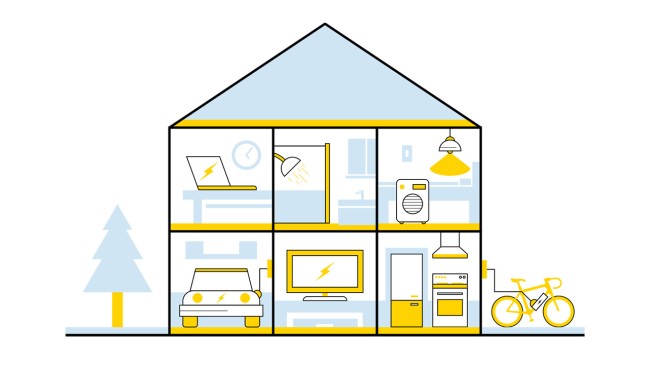EnergyMate coach Michelle Nahu generates an infectious enthusiasm as she outlines how the energy coaching programme has helped whānau in Rotorua improve cold, damp and costly-to-heat homes.
“It’s really been the doorway to providing better outcomes,” says Michelle, who has been involved in award-winning programme since it began in 2019, providing advice and support to more than 500 households experiencing hardship.
“With EnergyMate, we make a difference on the spot, that's one of the things I like about it.”
Michelle started as an EnergyMate provider after decades working as a budget advisor.
She says one of the programme’s main attractions for her is that coaches visit homes in their communities, rather than providing advice remotely.
“With EnergyMate, you get into people’s homes and see the circumstances that a family is living in. When you’re sitting in an office, you can calculate numbers and ring creditors but you don’t get the full picture of what’s happening – why are these people in poverty? What are their living conditions really like?”
Providing advice, discussing options
EnergyMate is an ERANZ-led initiative funded by electricity retailers, lines companies and government, carried out in partnership with community-based financial mentoring and kaupapa Māori services.
The service involves specially trained local energy coaches visiting the homes of eligible whānau to advise where savings can be made in areas like heating, lighting and hot water.
“We go into a home, we have a conversation about their plan and discuss options,” Michelle says.
“We can also talk to them about the basics of what's in their power bill -- 80% of our families don't know how to read the power bill and it’s important to understand.”
She said the programme – which also includes community workshops -- helps families lower power bills and warm their homes more efficiently.
“What I've been seeing in our area is people have been cutting their power bills from $40 to $80 a month, which is huge. I had one lady say to me 'thank you, now I can buy meat'. It shows, these are real people who are struggling.”
While EnergyMate is primarily focused on electricity use, Michelle said the visits also provided the opportunity identify other issues facing whānau.
“We're able to connect families with services that can help, and services that can contact the landlord head on and say 'these are the issues we've found'.
“On some of the EnergyMate visits I've done, I've been on the phone to Work & Income straight away to get food parcels because children are hungry. I wouldn’t have seen that if I wasn’t in the home.”
She said EnergyMate’s focus on local community was important because it meant whānau trusted coaches to enter their homes.
'Helping families have better lives'
Lines company, Unison Networks first partnered with EnergyMate with its initial pilot in 2019, launching the programme into Rotorua. Following this success, Unison has continued its support and extended this to Taupō and Hawke’s Bay.
Unison General Manager Commercial and Regulatory, Jason Larkin said Unison truly values the impact of EnergyMate and recognises the importance of Michelle’s contribution to its growth over the past five years.
“We see our involvement in this programme as a great way to support families to make their homes warmer and healthier. It’s been pleasing to see the success of the programme in Rotorua.
"Michelle has been instrumental in shaping the success of EnergyMate in Rotorua. She is dedicated and knowledgeable, providing valuable assistance to whānau in getting the most out of their electricity.
“Her strong community ties and genuine passion for making a positive impact have proven her to be an invaluable resource for both the programme and the community as a whole,” Mr Larkin said.
Michelle said being involved in EnergyMate was extremely rewarding.
“The biggest thing for me is treating people how I'd like to be treated, so there's lot of respect in our programme,” she said.
“I just want to be out there helping families have better lives. I want them to be in a better position after we've visited, and that's what we've done.”

